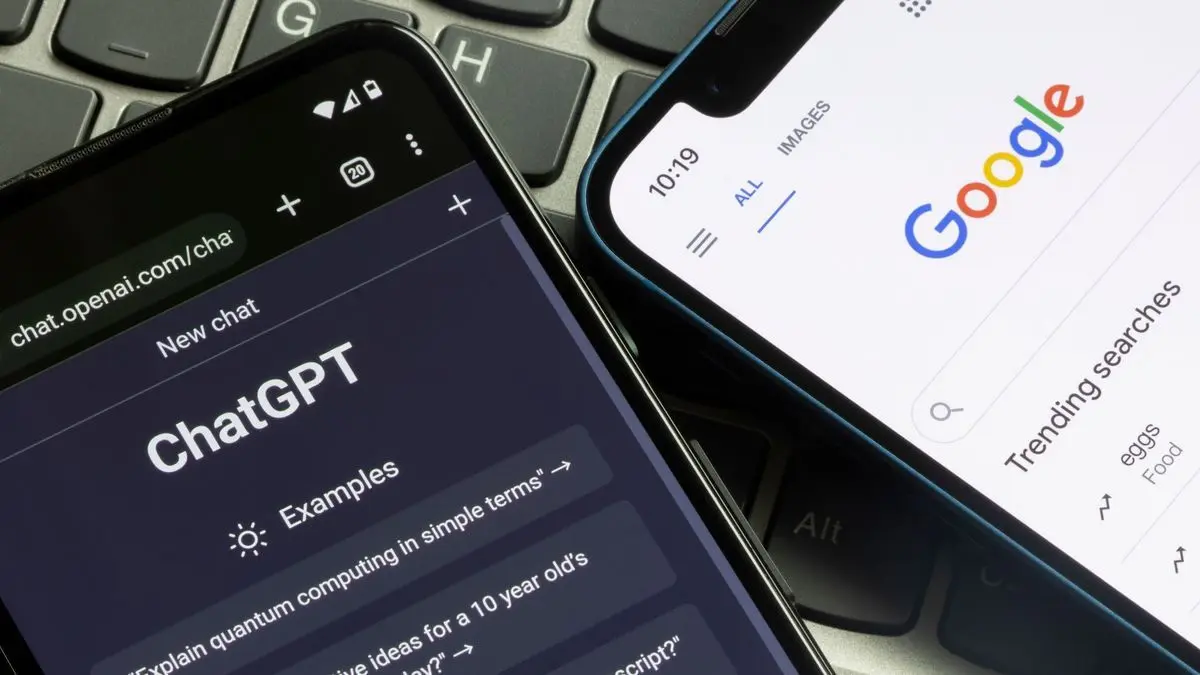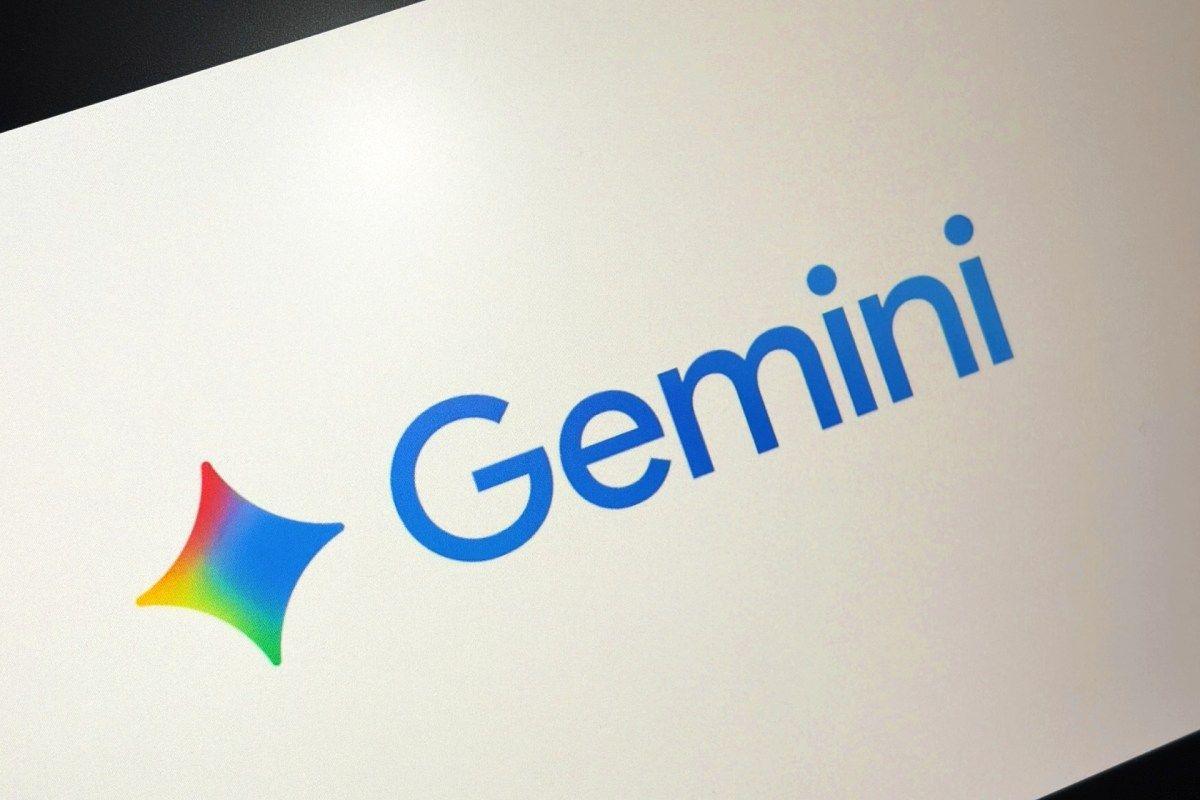Google's Gemini AI Aims for 500 Million Users by 2025, Challenging ChatGPT's Dominance
3 Sources
3 Sources
[1]
Can Gemini ever catch ChatGPT in the AI race? Here's where it stands now
Though growing in capability, Gemini still isn't as popular as competing AI apps and services. Google has been beefing up the skills and scope of its Gemini AI, though it's still playing second, third, and even fourth fiddle to other AI bots. On Thursday, a Wall Street Journal story shared details on the popularity of Gemini AI and Google's struggle to extend its reach. Though it's long been the king of search and had been working on its own AI bots, Google was caught off guard by the debut of ChatGPT in late 2022. "The company has been scrambling to catch up ever since," said the Journal. Also: The best AI chatbots of 2025: ChatGPT, Copilot, and notable alternatives With its search engine, advertising income, Android market, and other areas, Google hardly depends on the revenue generated by Gemini. However, the AI arena is shaping up to be a lucrative and exciting new source of money and market share. That's why it's important to Google that it continue trying to better compete with other generative AI providers. But there's one major obstacle standing in Google's way. OpenAI continues to dominate the AI landscape with ChatGPT. Looking at one revealing stat about subscriptions, OpenAI is currently the leader at capturing retail AI customers. ChatGPT Plus and Pro users accounted for 62.5% of all paid AI B2C sales in the US at the end of 2024, according to a January 2025 Earnest Analytics report cited by the WSJ. Other players also have made a dent. Midjourney at 6%, Claude maker Anthropic at 4.5%, and AI photo and video service Topaz Labs at 3.7% round out the list of the top four paid AI tools based on market share. Gemini was stuck in fifth place with a 3.1% slice of all that revenue. About 56% of Gemini subscribers kept their subscriptions alive six months after initially signing up, according to the same report. In that respect, Google outshined such rivals as Character.AI and Perplexity but was below OpenAI at 70% and Anthropic at 75%. Also: Gmail's new button makes using Gemini to reply to emails on Android a breeze Google itself hasn't revealed how many people currently use Gemini, the WSJ said. A December 2024 report said that Gemini averaged almost 275 million monthly visits by the end of the year. Though that was up from 270 million monthly visits in August 2024 and 271 million in July 2024, it was down from 292 million in October. In contrast, ChatGPT has around 300 million weekly users, according to OpenAI. Based on the latest stats from Apple, the Gemini mobile app was the 55th most downloaded free app for iPhones, while ChatGPT was No. 4. The ChatGPT app has been available for iOS since May 2023, whereas Google launched the Gemini iPhone app just last November. Still, that's a wide gap. Though Gemini may be less popular than ChatGPT, the technology itself has been advancing. Last year, Google introduced Gemini Live, a way to carry on real-time conversations with the AI bot. In December, the company unveiled Deep Research, an agentic feature for Gemini Advanced designed to conduct research on your behalf. Also: Google TVs are getting a major Gemini upgrade in 2025 - here are the 3 best features On Wednesday, Google inked a deal with the Associated Press to incorporate real-time news feeds into Gemini. And now in experimental mode is Gemini 2.0, an upgrade to the AI that promises to be faster, smarter, and more capable than the current 1.5 flavor. Google CEO Sundar Pichai recently told employees that he feels Gemini's capabilities have surpassed those of competitors. In return, Pichai wants Gemini to be used by 500 million people by the end of 2025, sources familiar with the matter told the WSJ. For now, all Google can do is continue to advance the service, maybe throw in more of its marketing savvy, and hope that more people will turn to Gemini and not ChatGPT when they need a dose of AI.
[2]
Google Wants 500 Million Gemini AI Users by Year's End | PYMNTS.com
Now, Pichai wants to get Google's chatbot to be used by 500 million people before the end of the year, The Wall Street Journal reported Thursday (Jan. 16), citing unnamed sources. Google was caught off guard when OpenAI's ChatGPT launched in 2022, despite having spent years pioneering AI and building similar chatbots, the report said. Since then, the tech giant has scrambled to keep up, with Gemini at the center of its effort to remain at the forefront of AI. While Google hasn't said how many people are using Gemini, it was the 54th most downloaded free app on iPhones Wednesday (Jan. 15), according to the report. ChatGPT, which has 300 million weekly users, occupied the No. 4 spot on the list. ChatGPT's mobile app has been downloaded about 465 million times on Android and iOS devices, versus 106 million for Gemini, with most of those downloads happening on Android devices, the report said. Google is looking for new business lines, such as subscriptions, as growth in search advertising has waned, per the report. The company offers a premium edition of Gemini with added features for $20 a month. Google also announced this week that it phased out its $20 monthly fee for AI features on its Workspace products. Subscribers to its Workspace Business and Enterprise plans will now get Gemini features at no added cost. However, the company plans to increase the prices of its Workspace Business and Enterprise plans starting Thursday. Meanwhile, PYMNTS wrote earlier this week about artificial general intelligence (AGI) for business, noting that while AI can perform many tasks, there are still limits to how it can help a company. "AGI would change the game completely," PYMNTS wrote Monday (Jan. 13). "It would possess human-like general problem-solving abilities and cognitive flexibility. Just as a human who learns to cook can apply those organizational and timing skills to project management, an AGI system could take lessons from one domain and apply them to completely different challenges. This adaptability is what makes AGI such a transformative concept for business."
[3]
Google CEO aims for 500 million users for Gemini AI chatbot - WSJ By Investing.com
Investing.com -- Google's CEO Sundar Pichai is confident that the company's Gemini AI technology is the best in the market. His next goal is to convince consumers to use it. Pichai has expressed his intention to have the chatbot, which is built on Gemini AI technology, used by 500 million people by the end of 2025, sources familiar with the matter told the Wall Street Journal. Google has not disclosed the current user base for Gemini. However, its competitor, ChatGPT, boasts approximately 300 million weekly users. As of Wednesday, the Gemini app was the 54th most downloaded free app on iPhones, while ChatGPT held the fourth position. Pichai's ambition reflects Google's determination to surpass its competitors in the artificial intelligence field. The company's chief executive believes that Google's AI technology has outperformed its competitors, and now the focus is on expanding its user base. In other recent news, Alphabet (NASDAQ:GOOGL), parent company of Google, is under investigation by the UK's Competition and Markets Authority over its search services' potential impact on competition. This follows the establishment of a new digital-markets regime in the UK. Stifel analysts have recently reiterated a Buy rating for Alphabet, adjusting their price target in light of recent developments. The firm anticipates that Alphabet and META could capture the majority of redirected ad spend if TikTok faces unfavorable outcomes. In a partnership with Google Cloud, Mercedes-Benz (OTC:MBGAF) has enhanced the MBUX Virtual Assistant in its vehicles with advanced AI capabilities. This is expected to debut with the new CLA series and provide drivers with more detailed and personalized responses during navigation. The Supreme Court is hearing arguments regarding a potential TikTok ban in the U.S., which could impact companies like Meta (NASDAQ:META), Oracle (NYSE:ORCL), and Alphabet. Piper Sandler has reaffirmed Alphabet as one of its top stock picks for 2025, despite potential anti-trust penalties. These developments reflect recent shifts and trends impacting Alphabet's operations and market position.
Share
Share
Copy Link
Google CEO Sundar Pichai sets an ambitious goal for Gemini AI to reach 500 million users by the end of 2025, as the company strives to catch up with OpenAI's ChatGPT in the competitive AI landscape.

Google's Ambitious Goal for Gemini AI
Google CEO Sundar Pichai has set an ambitious target for the company's Gemini AI chatbot: to reach 500 million users by the end of 2025. This goal comes as Google strives to catch up with OpenAI's ChatGPT in the competitive artificial intelligence landscape
1
.Current Market Position
Despite Google's efforts, Gemini currently lags behind its competitors in terms of user adoption and market share:
- ChatGPT boasts approximately 300 million weekly users
2
. - Gemini's mobile app has been downloaded about 106 million times, primarily on Android devices
2
. - In the U.S. paid AI B2C market, ChatGPT Plus and Pro users account for 62.5% of sales, while Gemini holds only a 3.1% market share
1
.
Technological Advancements
Despite its lower popularity, Google has been actively improving Gemini's capabilities:
- Introduction of Gemini Live for real-time conversations
- Launch of Deep Research, an agentic feature for Gemini Advanced
- Partnership with Associated Press to incorporate real-time news feeds
- Development of Gemini 2.0, promising faster and smarter performance
1
Related Stories
Challenges and Strategies
Google faces several challenges in achieving its user growth target:
- Late entry: Google was caught off guard by ChatGPT's launch in 2022, despite its years of AI research
2
. - App store rankings: As of January 2025, the Gemini mobile app ranked 55th among free iPhone apps, while ChatGPT held the 4th position
1
. - User retention: Gemini's six-month subscription retention rate is 56%, lower than OpenAI's 70% and Anthropic's 75%
1
.
To address these challenges, Google is implementing various strategies:
- Integrating Gemini features into Workspace products at no additional cost for Business and Enterprise subscribers
2
. - Exploring new business lines, such as subscriptions, to offset slowing growth in search advertising
2
. - Leveraging its existing platforms like Android and search to promote Gemini
1
.
Industry Impact and Future Outlook
The race for AI dominance has significant implications for the tech industry:
- Potential for new revenue streams and market share in the growing AI sector
1
. - Increased competition driving rapid innovation and feature development
1
. - Shifting focus towards artificial general intelligence (AGI) for business applications
2
.
As Google continues to advance Gemini's capabilities, the company remains optimistic about its potential. CEO Sundar Pichai believes that Gemini's technology has surpassed that of its competitors
3
. However, the challenge lies in convincing consumers to adopt and use the platform regularly.The outcome of this AI race could have far-reaching consequences for the tech industry, potentially reshaping the landscape of digital services and business operations in the coming years.
References
Summarized by
Navi
Related Stories
Google's Gemini AI Reaches 350 Million Monthly Users, Still Trails Behind Competitors
24 Apr 2025•Technology

Google's Gemini closes gap with ChatGPT as AI chatbot race intensifies and regulators circle
10 Dec 2025•Technology

Google Gemini reaches 750 million users as Gemini 3 launch drives explosive growth
05 Feb 2026•Technology

Recent Highlights
1
ByteDance Faces Hollywood Backlash After Seedance 2.0 Creates Unauthorized Celebrity Deepfakes
Technology

2
Microsoft AI chief predicts artificial intelligence will automate most white-collar jobs in 18 months
Business and Economy

3
Google reports state-sponsored hackers exploit Gemini AI across all stages of cyberattacks
Technology





